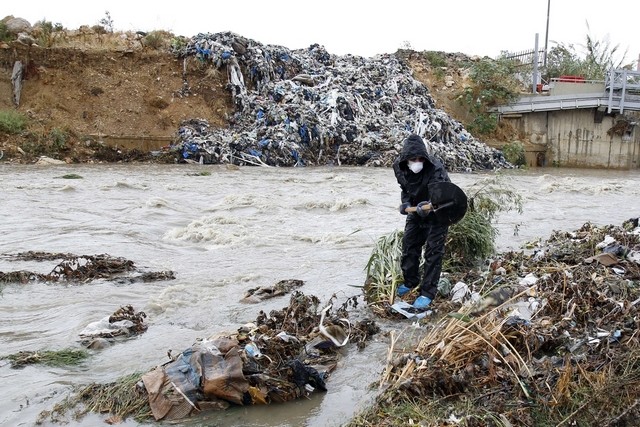By Michael Karam, .thenational.ae

There has been only one story coming out of Lebanon at the moment: the denouement of the environmental disaster that is a direct cause of the ongoing four-month rubbish crisis. Its consequences will have a direct effect on the political, social and economic future of the country for many months, perhaps even years, to come.
I lived in Lebanon for 22 years, from 1992 to 2014. During this time, I experienced three wars, a revolution and an attempted coup. The period involved the last 13 years of the Syrian occupation, which ended in 2005. Then we had five years of political assassinations and terror attacks before the outbreak of the Syrian civil war.
Quite a catalogue, you might think, but we never really lost our cool, because we Lebanese know we live in a tricky neighbourhood and that we are not always masters of our own destiny. In any case, not only have we been trained to knuckle down and get on with it, we have an inbuilt aversion to rocking the boat. If compromise can be achieved, why make a fuss? The latter is our Achilles heel.
But on Saturday night something broke, literally and metaphorically. The 40,000 tonnes of rubbish that has been gathering in mountains since mid-July were dislodged by the first rains and washed on to the streets of the capital and elsewhere across the country, potentially polluting the soil and the nation’s water supplies. The nation also lost patience.
This time we could blame Israel or Syria or Iran. It was our own doing. I say “our” because I can’t help but blame a large chunk of the Lebanese population who were reluctant to get behind the activists who had the courage to challenge the government for its shameful and criminal inactivity. They didn’t want to make a fuss and look what happened. But the biggest portion of blame must be laid squarely at the state’s doorstep. It has been breathtakingly incompetent and corrupt. A politician who puts up his hand and says: “I say, hang on a second. I’ve never stolen anything in my life”, is guilty by association. No ifs or buts. It’s that simple.
Let us examine the evidence. In mid-July, the state found that it had nowhere to dispose of tens of thousands of tonnes of unseparated waste, despite being warned of the deadline a year earlier. As the trash went uncollected; the state panicked and decided to simply hide it. Lorries were dispatched to surrounding valleys, clearings, car parks and, in one instance, a major underpass, and told to dump the refuse and drive off as if nothing had happened. The orders came straight from the top.
And since then nothing except wrangling over which company would be awarded the new contracts and who would eventually get the kickbacks. Meanwhile, NGOs warned anyone who cared to listen that the first rains would dislodge the mountains of potentially lethal trash, but the state still did nothing. And then Saturday night happened.
Time must now have surely run out for the ministers of the interior, environment and public works, while if he has any courage the health minister should step down in disgust. Lebanon needs to appoint a genuine technocrat before a lot of people become ill and the country’s international standing tumbles even further.
The good news is that we can, if we want, pick competent people to head up resolving the crisis. Ministers do not need to be members of parliament so after the prime minister Tammam Salam sacks the current environment minister Mohammad Machnouk he should offer the environment portfolio to Ziad Abi Chaker, the engineer who for years has worked with municipalities to find affordable and efficient ways of dealing with waste. Mr Abi Chaker has, in his career, developed novel and cheap ways to transform plastics, such as shopping bags, into solids that can be used as building materials as well as providing sensible temporary solutions to the current crisis, including preparing for the rains and the harsh winter.
I say “offer” because when I met Mr Abi Shaker in Beirut during the summer, he shook his head and laughed at the notion of a ministerial posting, backing off in mock fear.
Yes, it really is that bad.
Michael Karam is a freelance writer who lives between Beirut and Brighton.
Follow The National’s Business section on Twitter



